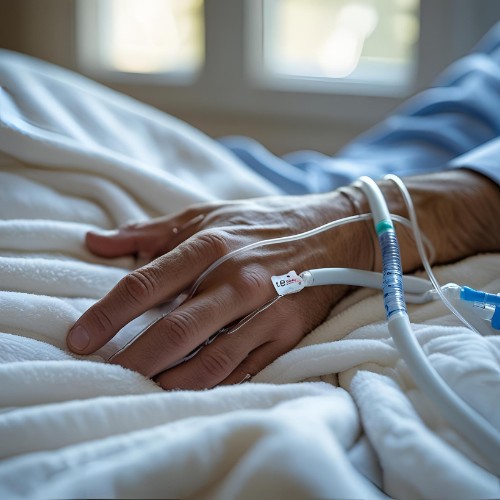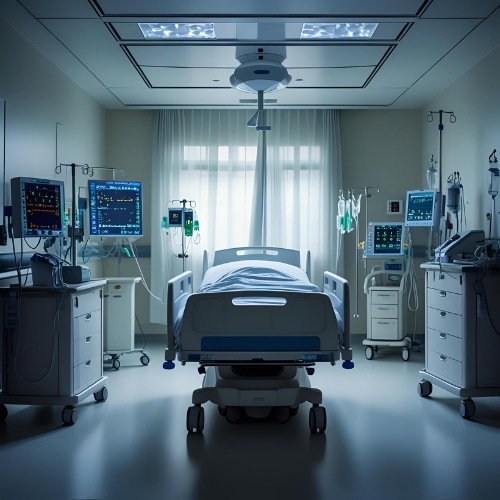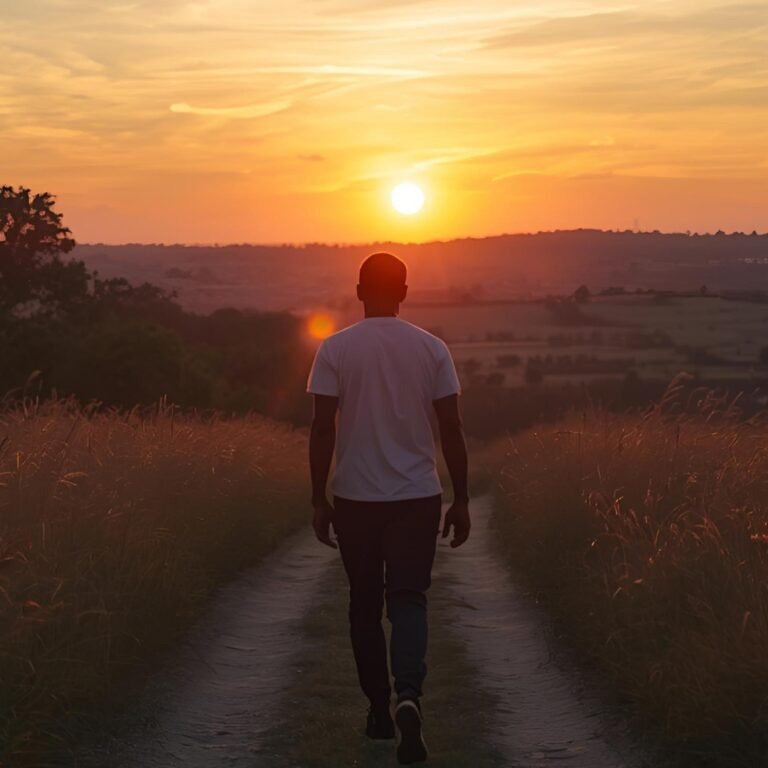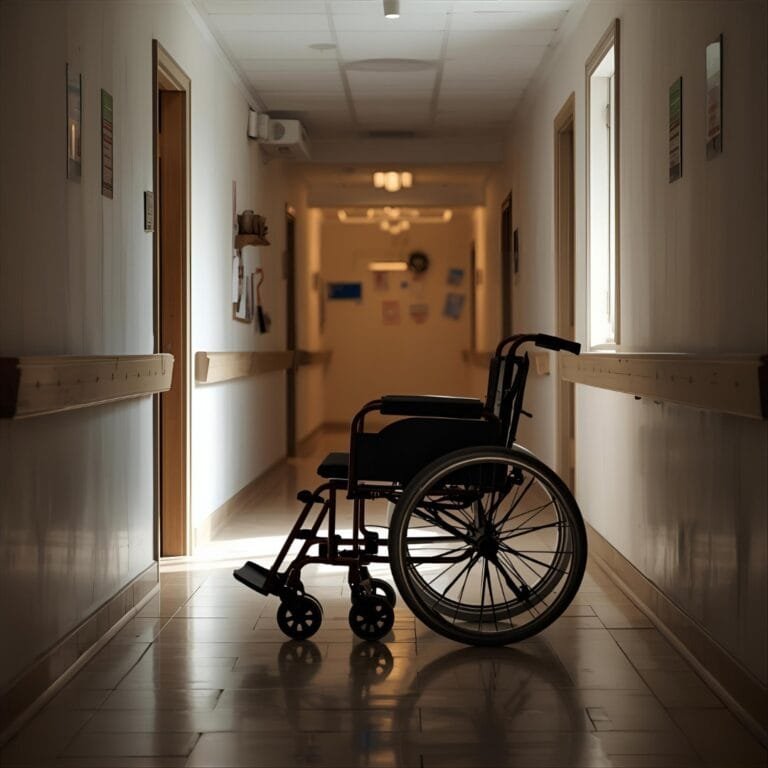Disclosure:
Thank you for reading this post, don't forget to subscribe!
Some of the links on this website are affiliate links. This means that if you click on the link and make a purchase, we may receive a small commission at no extra cost to you. Your support helps us keep the site running.Learn more on my Privacy Policy and Affiliate Disclosure page. Thank you for your support!
“The night I drove myself to the hospital, I didn’t know I was about to disappear into ten days of silence, dreams, and the quiet fight to survive.”
The Last Drive I Would Take for a While
It had been six days since my first symptoms crept in. At first, I brushed it off — maybe I caught something from work, maybe it was just exhaustion from pushing too hard. But by the fourth day, while doing a cleaning side gig at the mortuary, I felt a bone-deep exhaustion I couldn’t shake.
That night, I took a cold shower, thinking it might help break the fever. Instead, the opposite happened. My body felt heavier. My breathing grew shallow and labored. Each inhale felt like trying to pull air through a straw.
It was clear: I couldn’t push through this.
I grabbed my keys and drove myself to the nearest hospital — Kaiser Permanente in Manteca, California. My last clear memory before everything went dark was stepping into the ER, gasping for air.
Falling Into the Quiet
The next thing I knew — or didn’t know — was that I was in the ICU. I had been unconscious for days, in what the doctors later told me was a seven-day coma.
It’s strange to describe what you see and feel in a coma. Part of me was gone, but part of me… was somewhere else entirely. I remember the strange contrast: the room felt both eerily quiet and yet somehow busy in the background — shadows moving, muffled voices, quick footsteps.
And then there was her.
An old woman, dressed like a nurse, who stayed with me the whole time. She spoke softly, sometimes whispering in my ear: “You’re going to be okay. You have to fight. You’re going to be fine.”
It took me a while to realize… she looked exactly like my mother, who had passed away years ago. In my heart, I knew it wasn’t just a dream. She was there — my angel, my guardian, watching over me in the darkest hours.
Suggestions (reputable sources)–Anchor text: Post-COVID Conditions (Long COVID) — CDC.
- Anchor text: Post-COVID Conditions (Long COVID) — CDC
Waking Up in a Different World

When I finally opened my eyes, the first sensation was confusion. My body wouldn’t move. My voice was barely a whisper. The weight of tubes and wires pinned me down: oxygen, intubation, IV lines, a heart monitor. My throat ached from the breathing tube. My mouth was dry, my chest heavy, my head foggy.
And then I heard voices.
A nurse leaned over and said, “You’re going to be okay, Ferdinand. We’ve got you.” The doctor echoed the reassurance.
Emotionally, I felt blessed — grateful beyond words to be alive. Physically, I felt hopeless — trapped in a body that wouldn’t obey me. But in those words, in their calm certainty, I found a spark of faith.
The Fight Inside the ICU
The nurses later told me I had been strong — even in my disorientation, even when I tried to get out of bed without the strength to stand. They kept me safe, kept me grounded.
Every day was a strange mix of suffering and hope:
- Pain from the tubes
- Heaviness in my limbs
- Dizziness and thirst that never seemed to end
- A body that was paralyzed waist down, refusing to move
But there were also moments of light. Nurses who spoke to me like I was family. A male nurse who told me his own survival story from the first wave of COVID, reminding me that healing was possible. Therapists who encouraged me to take tiny steps, even when walking felt impossible.
Check our post on: Building Resilience: Your Guide to Mastering Stress in Everyday Life.
The Angel in the Room
Even as I regained some awareness, I kept thinking about the old lady dressed like a nurse. Her image and voice stayed with me, more vivid than any dream. In my heart, I knew it was my mother. She hadn’t just been in my imagination — she was my anchor, my comfort, my reminder that I wasn’t alone.
The Sounds and Sights That Stayed
Beyond her whispers, there were other things that stuck in my mind:
- The muffled sounds of machines and occasional alarms
- The voice of a man screaming somewhere in the distance, even though I was isolated behind closed ICU doors
- The sight of staff moving in full hazmat suits, like scenes from a disaster movie
These images etched themselves into my memory — stark reminders of the world I had entered.
Turning a Corner
After about ten days in the ICU, the doctors decided I was stable enough to move to a hospital ward. The transition was bittersweet:
- Relief, because I had survived the worst
- Fear, because I still couldn’t walk, could barely move my hands, and my speech was slow and broken
The first sign of improvement was when they removed the breathing tube and offered me water with ice. That first sip felt like life itself. Soon after, I began eating small meals, each bite a victory.
The medical staff told me I was one of the lucky ones — that my survival was rare given how bad my condition was. They credited my bodybuilding strength, my will to fight, and, I believe, God’s grace.
Leaving the ICU Behind

On my last day in ICU, I remember a mix of gratitude and fear. Gratitude for the team that had carried me through. Fear of the unknown road ahead. The doctors warned me: recovery would be long, and for some, it never came.
Their plan was to transfer me to a rehabilitation center in Stockton, California, where I could begin the slow process of learning to walk and speak again. That, as I would soon learn, would be its own battle — a story for Part 3.
Surviving the ICU changed me forever — but I know I’m not alone. Have you or someone you love faced a battle like this? Share your experiences in the comments below. Your story could be the hope someone else needs today.
👉 Read: Part-1 Before the Fall: The Life I Lived Before COVID Changed Everything
👉 Next: Part 3 – Rehab & Relearning Life is coming soon — make sure you’re subscribed so you don’t miss it.
MORE ABOUT:
HEALTH / WELLNESS / FITNESS / NUTRITION
Share This Article








